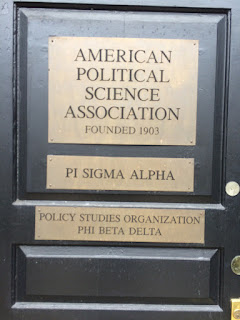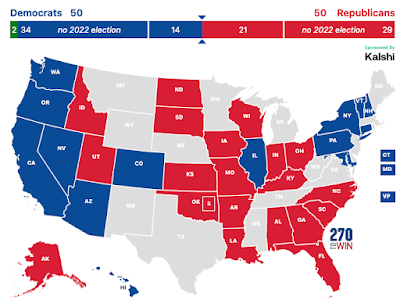10 Tips for Going on the Political Science Job Market
It’s August, and academics are procrastinating so I’ve seen lots of advice on the job market. A lot of this advice seems good, but it usually comes from tenured professors who last went on the market before the advent of Twitter. So here are ten quick thoughts on my two recent trips to the academic job market:
- Long term planning. One of the most sobering pieces of advice I got on the market came from Mike Horowitz at Penn, who emphasized to a group of us: “The market is a multi-year process.” This turned out to be the case for me, and the majority of people I have seen go through the market. At Penn we had 5 years of guaranteed funding, so planning for the market should begin in earnest in the second half of the fourth year. Once you lose that guaranteed funding, you’ll need to spend time on finding contingent employment, and anytime that is spent not on research you will not get back. I imagine this is especially true for schools without guaranteed funding.
If you are on the fence about when to go, my advice would be to proceed as if you are going on the market (from spring until August). If you bust your butt on a job market paper, the worst thing that can happen is you decide not to go on the market and you will have lots of work down on your key asset. - When to go? This is the first major decision you will need to make, and one that you should value your advisor’s opinion on highly. To do so you need to evaluate your assets. In my field (quantitative American politics), publishing a peer-reviewed journal article has essentially become a pre-requisite for serious consideration on the market (and I think it helps if it is solo-authored). There are exceptions to every rule, but if and when you have this under your belt, it could be time to go for it. In my case, one of the reasons I defended in a timely fashion is that I secured a post-doc in my first pass at the market, and that really clarified the timeline for my committee and me.
- What does an application look like? Shana Gadarian had useful slides on the nuts and bolts of an application, I would just suggest looking at candidates who got the type of jobs you would want in the previous cycle. Download their CV, read their job market paper… you’ll get a sense of the sophistication the market is looking for, and what a successful application can be.
- You are the director of marketing. As an academic, you’re actually a one-person enterprise. While your core technology is research, and your secondary technology is teaching, do not forget that you are in charge of marketing yourself. In my opinion, this should entail having a web presence (an up-to-date department website is fine, but a snappy version doesn’t hurt). Just from looking at the Google analytics on my website I can tell you that I would have a number of hits from schools in the days before and after interactions (leading to both positive and negative outcomes!). I would also suggest following/interacting with political scientists on Twitter. Like it or not, poli sci Twitter is our field’s commons.
- The job market paper: I was on the market twice, and had much more success the second time through. My second job market paper was significantly more clear than my first effort. Specifically, I could describe it in 1-2 sentences, whereas my previous entry was more innovative, but took 3-4 sentences to explain. I think this held me back. You want to use your job market paper as an opportunity to showcase your cutting edge tools, but try not to underestimate how important clarity can be. A committee member may only give it a cursory read once.
- Cover Letter Tailoring: I sent over 50 applications in each of my two years on the market, so it’s not realistic to write entirely original cover letters to each school. However, I applied to both R1 and Selective Liberal Arts Colleges, in both political science, communications, and public policy. I would suggest having different letters for these different categories of positions, and not just a line or two about some regional connection you have. A SLAC is looking for a different candidate than an Ivy league school, so try to speak to that.
Also, I haven’t sat on a search committee, but looking at other candidates websites, it’s clear that there is not shortage of qualified candidates with sparkling CVs. Therefore, I would try to be as specific as possible when discussing your qualifications. Whenever you can show instead of tell it is helpful: “I believe it’s important to engage students with current events to understand healthy policy” is not as powerful as “Last semester, I students in my class were engaged with current events after I assigned them to write OP-EDs on the Obamacare repeal debate in our state.” - How to start. It’s a bizarre interaction, but I had success with in-person interviews at APSA. These can be scheduled with a note as brief as: “My name is Alex Garlick and I am a Ph.D. candidate at UPenn. I came across your department's ad for a position in American politics and public policy, which fits my research interests. My dissertation argues that… Since I plan on applying for this position, I wanted to reach out to possibly schedule an interview while you are at APSA. I am available to interview at… A copy of my CV is attached, but please let me know if there is anything else I could provide.”
- Who to listen to? As many people as you can! The best way to get someone’s help is to ask. It’s a bit paradoxical, but in a department where everyone seems so busy, I found that if you are earnest and ask a more senior person help (perhaps offering to share your cover letter or job market paper), some of the busiest people can find time for you.
The other truth is that you need to listen to your advisor. They are integral to your completion of your dissertation and your early career success, so if there are conflicting opinions, I would recommend keeping in mind where the buck stops. - Young wisdom. That being said, after soliciting advice from varied sources, I found that the wisdom I received from junior academics, who had been on the market more recently, tended to ring most true to my experience (and why I am writing this blog post when I should be putting the finishing touches on a syllabus). After writing a silly tweet about Interfolio (which was price gouging job applicants the last two years to the tune of $12 per application), I noticed that most of the political scientists immediately reacting to it had been on the market in recent years. Most senior academics have never been on the business end of an Interfolio bill, think about that.
- Don’t get too discouraged. The market is discouraging. It’s a very trying process where you should assume rejection with every effort. So try to keep your spirits up. As Rudy Sil at Penn told me: “Good people get good jobs,” although he added with a smile: “but bad people get great jobs.” Joking aside, there is truth in what he said -- if you are a good candidate, this convoluted process should work out.


